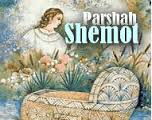 In Les Miserables, when Jean Valjean contemplates allowing an innocent man to suffer the fate meant for him, he ultimately decides to stop hiding his true identity and face the consequences of disappearing from his parole – and we understand this decision when he belts out: “Who am I? I’m Jean Valjean!”
In Les Miserables, when Jean Valjean contemplates allowing an innocent man to suffer the fate meant for him, he ultimately decides to stop hiding his true identity and face the consequences of disappearing from his parole – and we understand this decision when he belts out: “Who am I? I’m Jean Valjean!”
In this week’s parashah, Shemot, God appears to Moses in the burning bush and charges him to go to Pharaoh and demand he free the Israelites.
And now go and I will send you to Pharaoh and you shall take My people, the Children of Israel, out of Egypt.
Moses responds as many of our great leaders in the Bible have – with reluctance:
Moses replied to God: Who am I that I should go to Pharaoh and that I should take the Children of Israel out of Egypt?
Many commentators understand Moses’ question of “Who am I?” as one of humility – he’s asking God: why choose me, who am I to convince a king to do something, what influence could I have?
God actually answers the second part of Moses’ question – how can I take the Children of Israel out of Egypt – He says: “For I shall be with you.” But God does not answer the question “Who am I?”
Rabbi Lord Jonathan Sacks comments that Moses’ question could reflect the humility and reluctance we encounter with other leaders and prophets, but it could also reflect Moses’ inner turmoil regarding his own Jewish Identity. Moses was asking himself, as whom was he going to confront Pharaoh – as a former Prince of Egypt, someone who had grown up in the palace, or maybe as a Midianite, working as shepherd and married to the daughter of a Midianite prince. Or as the man who felt a connection to the suffering of the Israelite slaves and therefore killed an Egyptian slave master in their defense.
God did not have to answer Moses’ question “Who am I?” because Moses himself needed to find that answer within himself and the heritage from whence he came.
In the very beginning of the parashah, the text tells us:
A new king arose over Egypt, who did not know Joseph.
Many commentators wondered about the chronology, whether this new king really never met Joseph in his lifetime. Rashi commented that the king acted as if he didn’t know Joseph. Another commentator explained that when we read that this new Pharaoh didn’t know Joseph, it means he didn’t know what Joseph stood for or where he came from, he didn’t understand Joseph’s legacy. The implication is that had Pharaoh truly grasped who Joseph was and what Joseph contributed, Egypt would not have suffered its defeat by God.
Many of the leaders of the Jewish people did not project the image of a powerful force prior to assuming the role. They came from humble beginnings, they endured many struggles, they were reluctant to take on the role. Those who became great always respected the legacy of the people they were leading, and their humility allowed them to see the bigger picture outside of their own personal strengths and weaknesses.
We learn from Moses that it is less important who the leader is than who the people need him (or her) to be. Everyone has their own flaws and battles with their own insecurities; even the leader of the Jewish people. Sometimes it’s easy to feel that everyone has their act together more than you do – and, in most cases, it’s not true.
Shabbat Shalom.



